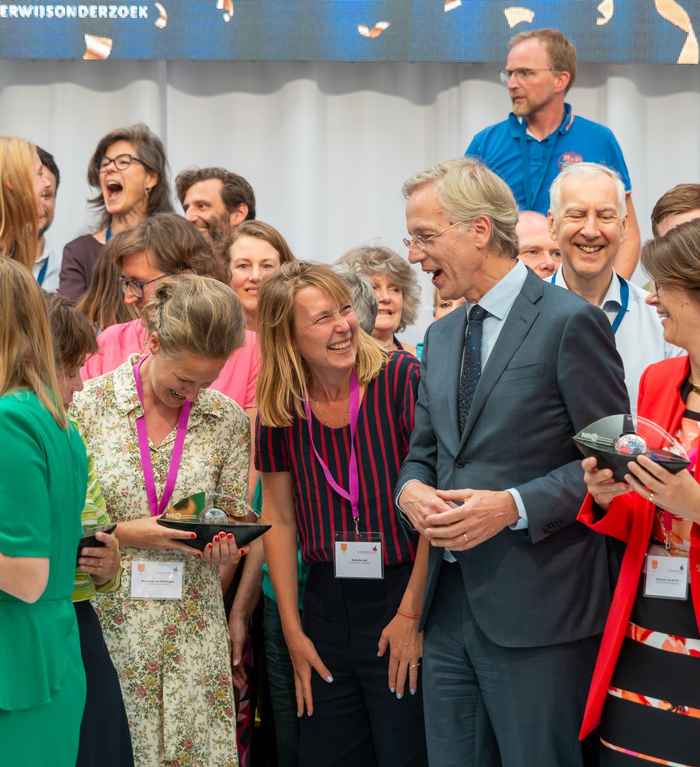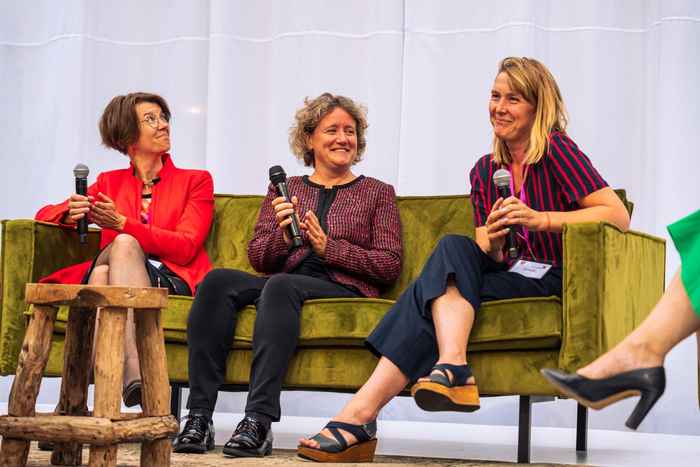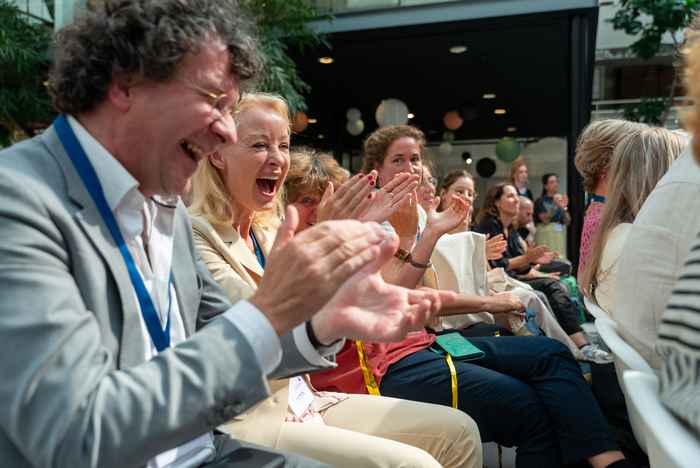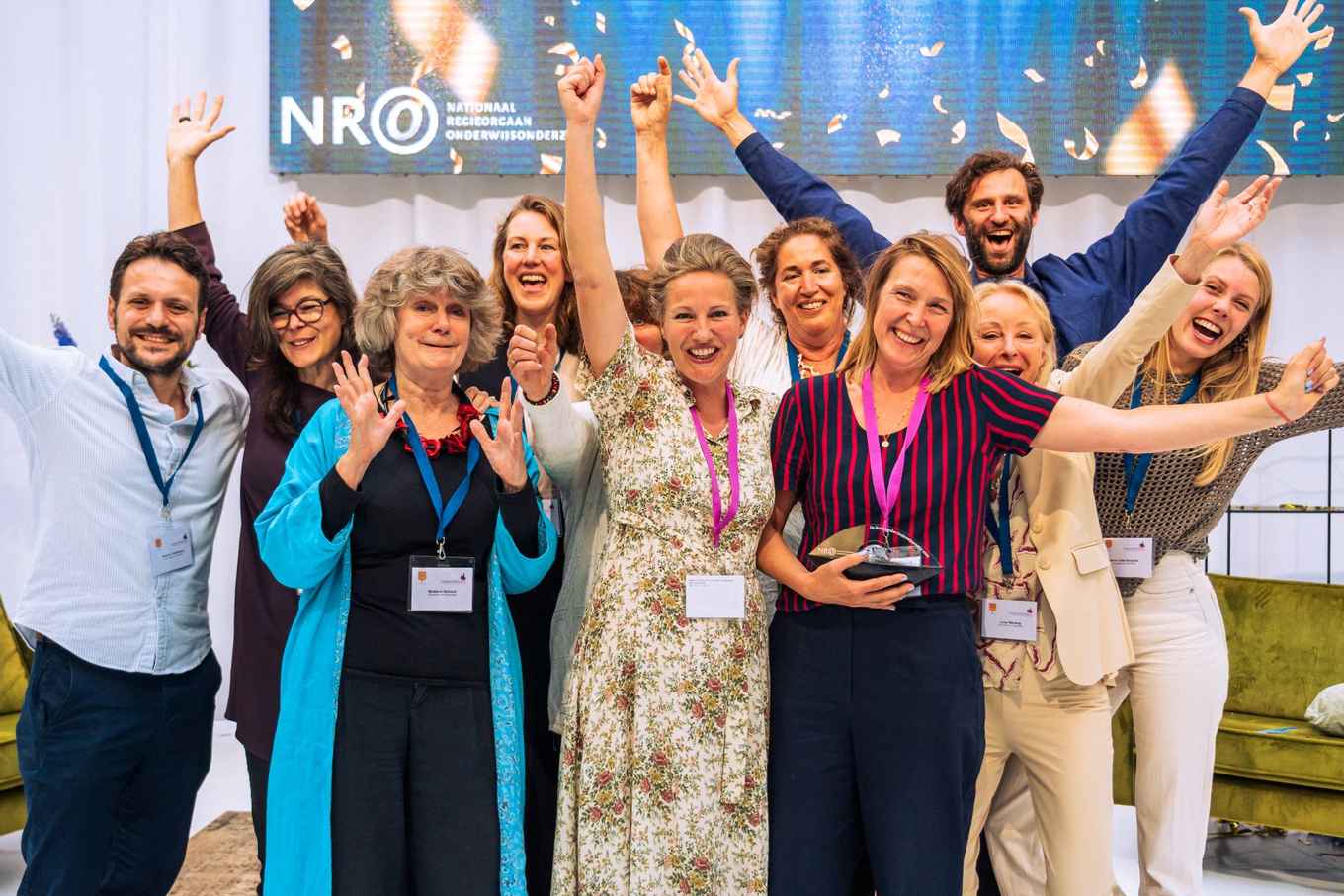Placemaking receives the Dutch Education Award: a recap
3 August 2023

Katusha Sol, project leader of Placemaking, stands on the podium with a big smile on her face, holding a small statuette. About thirty seconds ago she received the award by Minister Robbert Dijkgraaf. "I think it's really fantastic, and I'm super happy that we did this with this amazing team, and can get even more students to make a social impact. I'm really looking forward to that."
Groundbreaking cooperations
The afternoon of the presentation began with an introduction by the minister. The Dutch Education Awards are granted every year, and this year was a special edition. This was the first year that MBO (secondary Vocational Education and Training in the Netherlands) also received the education premiums. Minister Dijkgraaf was very happy about this. "Education should be the most innovative sector for me. We have to showcase but also financially support these innovations to enable them to take the next step and be able to expand across the entire educational field," a nod of approval came from the room of educational innovators from MBO, HBO and WO. "We still believe too much in boundaries between subjects and forms of education. All those interior walls and suspended ceilings need to come down."

Actively co-creating
This pushing of borders is a hallmark of all educational initiatives that were nominated. After Minister Dijkgraaf's introduction, the nominees were asked on stage for a brief Q&A session with the afternoon's presenter and the minister. Katusha was asked about the applicability of the project. "It could also be rolled out in other places." She looks into the room. "In the future, we think it would be very nice to join forces with HBO and MBO because these students have complementary skills." Minister Dijkgraaf asks her what the added value of this project is for the students. "They learn to retrieve information from society, but also to co-create and negotiate. This can be very challenging: how do you get out of conflicts, how do you show action? This is extremely valuable for their personal development."

500 students and 40 clients
In 2017, Placemaking started with a small-scale pilot. for a time, it was uncertain whether it could grow into a "permanent" subject. Fortunately, in 2019-2020 it was included in the curriculum of Interdisciplinary Social Sciences (ISW), and the Urban Studies minor. An elective course on Placemaking in the University Quarter was created, as well as a course on Placemaking for Conservation, which focuses on art and cultural heritage on campuses. A total of approximately five hundred students have now taken Placemaking on various campuses throughout the city, as a Summerschool, undergraduate course, elective, and as a graduate internship. This involved around forty local clients. Students really work together with each other and with local parties to improve the city where they study.
The ceremony
Katusha Sol stands on stage with the other nominees. The entire Placemaking team is present to witness the announcement: co-founder Rosanne van Wieringen, the teachers and educational developers of ISW, employees of the Education Lab of the Institute for Interdisciplinary Studies (IIS), the director of the IIS, Lucy Wenting, the Rector Magnificus of the UvA, Peter-Paul Verbeek. Everyone looks with excitement at Minister Robbert Dijkgraaf as he delivers the following statement, "The first prize goes to the initiative that has great social value for the campus communities around the university, and thereby makes learning meaningful for students. Placemaking, congratulations."
Read the full jury report of the Education Award here (in Dutch).
